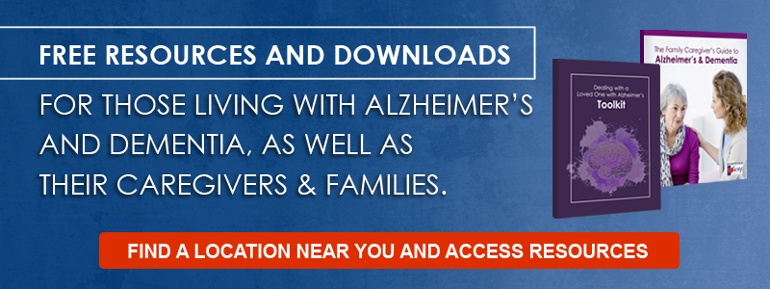Memory loss is a common complaint among seniors and their caregivers. The good news is there are easy ways to improve memory that aren’t expensive or time-consuming. Here are steps you can take to help preserve and even improve memory.
1. Sleep
Getting enough hours of sleep may not seem like much of a ‘cure’ for memory loss. But according to the National Sleep Foundation, sleep actually triggers changes in the brain that solidify memories. It also strengthens connections between brain cells and helps in transferring memories from short-term to long-term memory. This means the new memories your seniors make are more likely to stay with them.
How much sleep is enough? Between 6 and 9 hours of sleep is enough for most seniors. Something as simple as adequate sleep is an important part of improving memory for seniors.
Another part of sleep that helps memory in seniors is to keep their sleep time as undisturbed as possible. Studies show that if a senior’s sleep is interrupted more than a few times in a night they cannot focus attention as well when awake, and therefore can’t remember what they learned. Likewise, with disturbed sleep, your senior’s recent memories remain fragmented. They cannot put the pieces together as well and therefore can’t clearly remember what they did learn.
2. Improved Diet
According to Harvard Health Publications, foods that are high in saturated and trans fats, such as beef or steak, dairy, and fried foods, cause high levels of LDL cholesterol (the bad kind). Not only are these artery-clogging foods detrimental to the heart, but they can also cause damage to the brain.
Changing a senior's diet to foods that are high in mono- and polyunsaturated fats, such as fruits, vegetables, nuts, fish, and olive oil, will increase levels of HDL cholesterol (the good kind). This will prevent blood vessels from getting clogged or damaged and reduce the risk of memory loss and stroke.
3. Less Sitting, More Moving
Results from a study done by the Center for Brain Health at The University of Texas at Dallas showed that seniors who engaged in physical activities such as using a stationary bike or treadmill for only 1 hour 3 times a week for twelve weeks resulted in higher resting blood flow to the brain. Improvements in mental health were seen in as few as 6 weeks as there was an increase in blood flow to areas of the brain associated with improved memory.
As a side note, physical exercise improves mood by supplying endorphins and improves appetite as well. It also may provide opportunities for social interaction which also improves memory.
4. Mental Exercise
Learning new skills — like playing a new instrument, practicing a hobby that involves hand-eye coordination, performing memory exercises for seniors, and even doing math in your head — has been found to improve cognitive function and memory. Keeping your mind active with new challenges can keep your memory strong! For some specific mental exercises, take a look at these top 5 memory games for seniors.
5. Stay Social
Many studies have shown that it is crucial for seniors' mental health and memory to maintain social activity. Spending time with family and friends, even attending events can help maintain and improve mental functions. Research has even shown that just 10 minutes of social interaction a day can help!
6. Do a Sensory Test
This might sound clinical and strange, but sensory tests are a fun way to keep the brain elastic and strong. A sensory test makes new connections in the brain, as well as refreshing old ones. Conducting a test like this is simple: for example, take any food and, bite by bite, identify the different flavors you are experiencing. Especially with homemade or familiar foods, the results of these kinds of tests are effective.
To help minimize your senior’s memory loss, especially of recent events, make sure they get enough hours of undisturbed sleep. Along with the other healthy habits listed above. If you have questions, feel free to contact us at a location near you.


